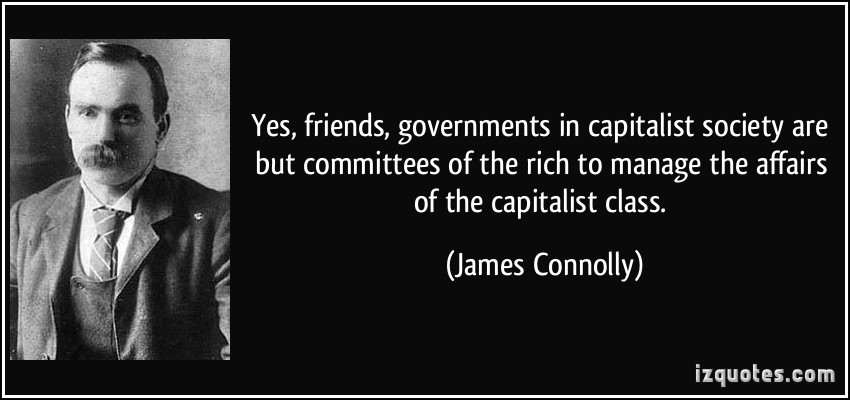I am anxiously following the real estate market and prices are far outpacing the wage growth, making real estate really unaffordable for a lot of people, and yet there is very little political will from politicians to do anything about it.
This is especially true for desirable areas and big cities, and slowly pushing low earners to the outskirts and even outside towns. I know plenty of people who hoarded multiple properties and now they simply rent them through Airbnb or booking not to mention big corporations trying to snap even more and rent them at outrageous prices. While plenty of people cannot afford even rent in those cities.
Mind you I am not US based, but I know that this is pretty much a world phenomenon for quite a few years who got really accelerated by the COVID pandemic, but its effect will cripple future generations severely who will never be able to purchase their own roof over their head and they will forever be stuck with ever increasing rents increasing enormously the financial burden of those people.
I don’t know for you but I believe this is completely unsustainable in the long term and this will become an even bigger problem in the future and I wonder why there is so little done to tackle the problem now, and what are those politicians hope, that this will magically disappear tomorrow and all will be roses?
Why aren’t universally some laws against home flipping and people owning more than one residential property? I think the right of having a roof over your head is a basic human right and every person out there deserves to have a decent home and not be forced to live on the street.
Why first time. Why not single property owners to allow that person with the efficiency condo to get a 2 bedroom townhouse and the townhouse person with kids to get a free standing house. If the issue is with multiproperty owners why not assist all no and uni property owners?
Because they need help the most. Once they can move out if rental accommodation, the demand for rentals will fall and so will property prices, and everyone will benefit (maybe except landlords).
yeah except your not increasing the supply of affordable first time units.
Dropping the demand for rentals is supposed to address this. But there is going to be a great big gap between “no one is renting” and “we can’t afford to keep this house that no one is renting” where the prices will skyrocket to try and make up costs, which kind of shoots this plan in the foot unless all the newly emancipated renters plan to pitch a tent for a couple years while the market settles.
its chicken and egg though. the demand for rentals will drop when people can buy but if all first time buyers have more money to buy but supply remains the same then the price of housing will just rise. the real solution is to build. government should build and sell at cost and keep doing it till housing is not something one goes to to make profit.
Why are politicians doing nothing for first time home buyers?
Why aren’t universally some laws against home flipping and people owning more than one residential property? I think the right of having a roof over your head is a basic human right and every person out there deserves to have a decent home and not be forced to live on the street.
Because that would be socialism, obviously!
Politicians are doing nothing for any normal people. They cater for those who contribute to their campaigns in a way that makes them remeberable - usually not normal people.
Quotes from a hundred years ago still apply perfectly well today.

But maybe people elect politicians, and perhaps they should look for their constituents rights first? I know that’s an utopia, but imagine the world…
@filister nah people barely get s choice
A lot of their constituency want the properties they own to go up in value. Or at least not down, which risks negative equity.
When 99% of voters pick the two major parties no matter how shitty the candidate, it’s unreasonable to expect meaningful change.
Hell, we’d still have two cognitively-impaired presidential candidates if Biden hadn’t had a nationally-televised meltdown, and those 99% would still be defending their cognitively-impaired candidates.
What should politicians do for first time home buyers? If you’re going to say give them money, I think that will actually only make unaffordability worse and drive up prices as everyone floods the market to use their credit.
What actually would help is if the US government created incentives to drastically increase the housing supply.
The town my parents live in would rather pay fines every year than build the state mandated amount of affordable housing and risk, gasp, lowering property values!
One way they could increase the housing supply is by severely taxing corporate ownership of single-family homes (and possibly low-occupancy multi-family homes like duplexes).
Give it a grace period, say… 3 months (to cover the cases where a bank forecloses and is sole owner while the house is auctioned), then charge like 95% tax on market value every quarter.
Additionally make it illegal to buy residential property if you do not spend more than 70% of your time living in the US (including travel) and must be a US citizen or US-headquartered company (with eminant domain type laws to reclaim the property if the company or citizen moves out of the country)
the communist party in my country wants to make housing cheaper, idk about other coubtries tho
As other have said, housing, at least in the US, has always been seen as an investment, and investments are supposed to appreciate in value. It is difficult to sell to political bases that one of two things must then be true: 1) People who bought houses 20+ years ago will have to lose equity on the house which they potentially were relying on for some amount of retirement, or 2) The government will have to step in and fill the gap (a la systems similar to agricultural subsidies). Neither of those things would you be able to sell to a wide enough base that they could be acted on.
In the end, this was caused by two things. On a practical level, prices continued climbing while wages stagnated over the past 40 years. On a more philosophical level, I personally don’t think that necessities such as housing should be commodified.
This also brings up the fact that single family homes, the predominant home type in the US, are not good from an environmental standpoint or an urban planning standpoint. It would be better to convert into duplexes and such. In the end, I agree that buying a home is way too much, but in the long run it may be good that the market is pushing more people towards lower impact forms of housing
Anything that makes housing affordable would also remove a significant amount of wealth from the elderly, who outvote and (I think) out donate other demographic groups.
Pretty hard thing to do politically.
In 20 or so years, when there are more voters unable to buy houses than there are voters who own houses, this should autocorrect.
The recent US trend of corporations buying up real estate to rent out is very scary because it will prevent this autocorrection.
How does it prevent the autocorrection? Wouldn’t future voters still not own housing?
I think what they’re implying is that it would not be feasible to seize or remove properties already owned by corporations, and by the time reforms are actually attempted they will own a significant portion of properties, making it extremely difficult to get those already-owned houses in the hands of first time buyers.
Housing as an investment is the entire goal of capitalism. Billionaires buy your politicians, you will own nothing. You cannot vote for a politician which is not owned by Billionaires.
Who do you think is writing the laws?
Reducing home prices requires destroying an entire branch of economy - real estate investment. Mind you not construction but owning property as an investment. It would noticeably drop the GDP and any other economic statistic as well as leave a bunch of people without jobs.
I guess in the mind of most politicians it’s not an acceptable course of action, even though avoiding it makes things worse in the long term.
What kind of jobs are you talking about? People speculating in real estate are doing so for passive income, not for employment. I just don’t see this job loss concern being legitimate.
Maybe some property management folk would have to change to slightly different aspects of the service industry, that could happen, but it’s just not large scale. In comparison, we hear stories everyday of people who can’t pay their mortgage or can’t pay rent, then they become homeless, and then they lose their job as a result.
Which is to say, I don’t think politicians believe for a second that high housing prices are keeping unemployment low. Also, you mentioned economic statistics, but for some reason you feel that homelessness isn’t included in them. That’s a peculiar choice.
People speculating in real estate are doing so for passive income
You severely underestimate the role of real state in the current economy. Banks, investment funds, pension funds, real estate agencies, insurance … Individuals looking for passive income are just a part of it.
Especially in North America, Europe and China (but true everywhere generally) real estate speculation takes a huge chunk of investment money of both individuals and companies.
you feel that homelessness isn’t included in them
It’s not, except as an afterthought. It’s not me inventing these statistics
I got a lot of help from HUD and FHA when I bought my house. I couldn’t have afforded to buy and renovate my home when I did without that program, which is only for first-time buyers. The program also helps housing supply by renovating unfit older buildings into usable housing stock.
So, at least in the US in general and Chicago specifically, gov’t is doing things to help first-time buyers.
Giving first time home buyer’s assistance just juices demand which would just lead to further increased housing prices.
The supply side is what needs to be addressed, that’s a lot harder though as builders would prefer to build luxury housing as opposed to starter homes.
Yeah ive seen this happen. After €15k grant was introduced, all house prices went up by that much. At least 1st time buyers are at an advantage in this case, over those who already have a home.
I am of the opinion that most “supply” issues are due to investors. Except in certain geographic areas we do not have a shortage of actual physical housing. What we have is a shortage of available housing at a mixed pricepoints for purchase.
All housing that investors purchase for rentals removes it from the supply.
Traditionally investors have sought out entry level housing for rent. They invest in building rental complexes. They make all cash purchases and then rent it out to people who otherwise would have been first-time homebuyers. Investors used to be the low end offer. Blatant price fixing has increased rent outrageously. Now investors are the high end offer and removing supply constantly.
With AirB&B, the middle and even upper range market that traditionally has had less investor competition is now a major target. This has led to price wars for investment purposes on previously safe segments.
The first solution to the housing supply is simple: taxing income from rent so that selling the property is financially more lucrative. It will have to include a prohibition against rental increases to cover the taxes as well.
The second is to mandate zoning and new construction to match the market needs not the needs of the investors.
Last would be to create a program where builders who focus on entry level housing receive incentives from governments (also include hefty penalty for substandard construction).
Well said, while I think there a probably caveats (that I don’t have the energy to debate since I mostly agree with you anyway) to each of your solutions, it’s definitely a good starting place to address the underlying issues with the housing market for single family homes
Because theyre greedy fucks enslaved to even greedier fucking corporations that control rents
This has been happening for a while. Most starter homes in the US are townhomes, detached townhomes or small single family homes in a denser neighborhood. Through the years, the building code has changed bit by bit to make those homes unaffordable. It’s similar to how you can pay half the price for a car in Mexico; there are much less mandated safety features. In houses, there are new energy codes (good for the environment) additional safety features like fire sprinklers and other similar things. Additionally, labor is more expensive, appliances and building materials are more expansive.
On the other side, you have people who have lived in their house for decades. The house (actually land) value has increased steadily and maybe they’ve kept it up, remodeling or putting in an addition. Now their kids are all moved out, they’ve retired and they’re ready to downsize, but the house they bought so long ago has appreciated and selling it to downsize would trigger a huge tax event on the appreciated value. They’re better off (financially) to keep it, pushing new buyers to look elsewhere.
It’s a complex problem intermixed with policy and also all the corporations mentioned elsewhere who have learned to profit from the broken system.








